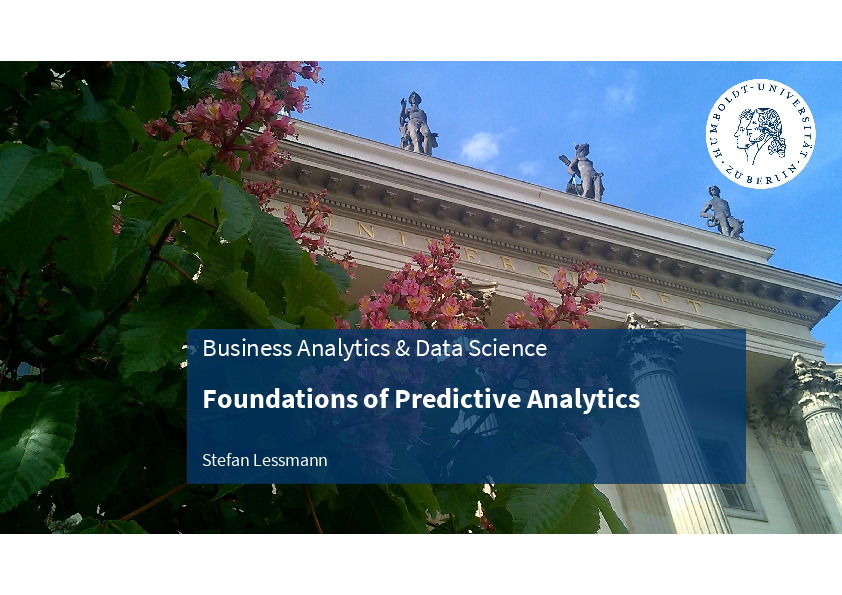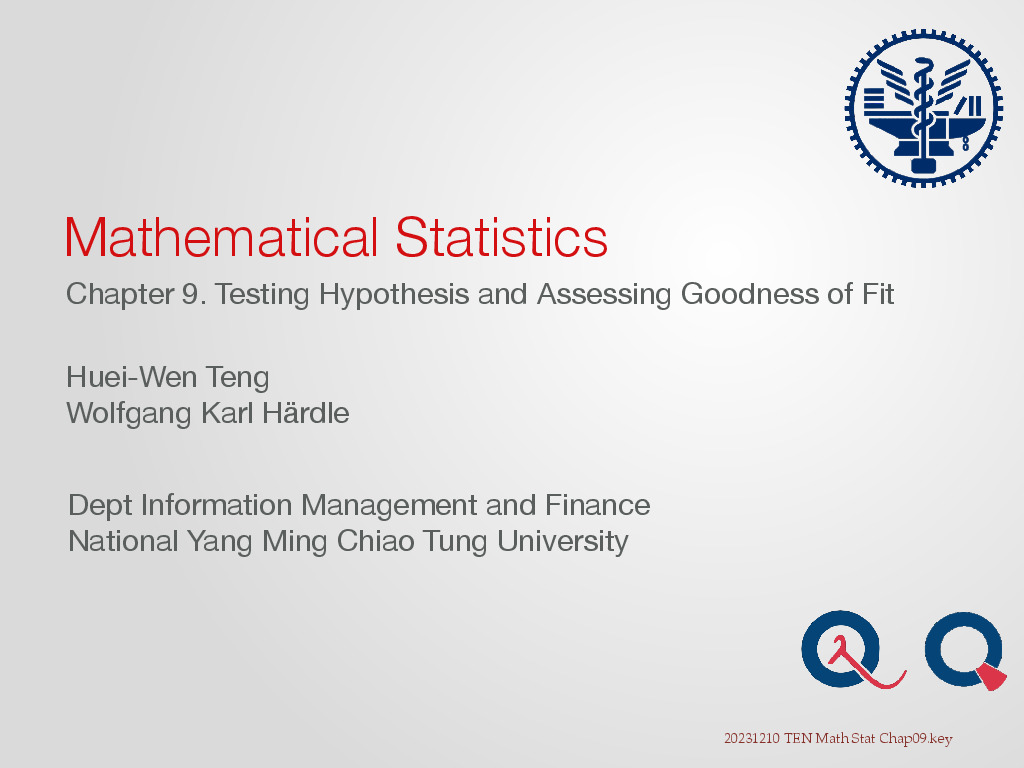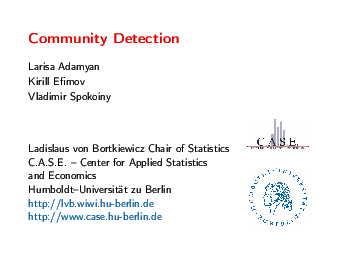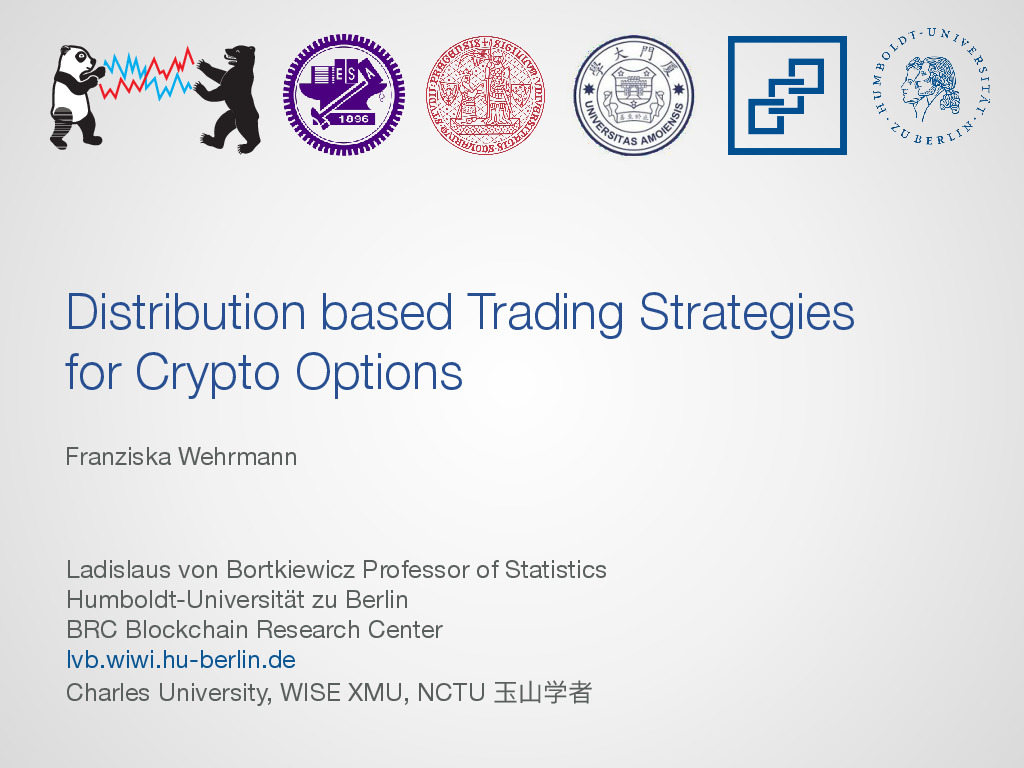Foundations of Predictive Analytics- Part 1
-
- 0 Rating
- 0 Reviews
- 2 Students Enrolled
Foundations of Predictive Analytics- Part 1
The "Foundations of Predictive Analytics - Part 1"section of the course provides a thorough introduction to predictive analytics, covering key concepts such as regression, classification, and segmentation. The document explores various machine learning algorithms and their business applications, including credit scoring and leasing industry use cases.
-
- 0 Rating
- 0 Reviews
- 2 Students Enrolled
Requirements
- Foundations of Descriptive Analytics- Part 1 and 2
General Overview
Description
-
Data Science and Machine Learning Algorithms Recap:
- Regression Techniques: Linear regression, neural networks, CART.
- Classification Methods: Logistic regression, nearest neighbor, boosting.
- Segmentation Approaches: Hierarchical clustering, K-means, DBSCAN.
- Rule/Sequence Mining: Apriori algorithm, FP-growth, PrefixSpan.
-
Business Use Cases:
- Leasing Industry: Predicting resale prices and setting leasing rates.
- Credit Scoring: Estimating default probabilities to inform lending decisions.
-
Principles of Prediction, Regression, and Classification:
- Fundamentals of predictive modeling and the distinction between regression and classification.
-
Supervised Machine Learning:
- Two-Stage Paradigm: Model training with historical data and model application on new data.
- Example: Resale price forecasting with supervised learning techniques.
-
Algorithm Selection for Supervised Learning:
- Guidance on choosing between tree-based, regression-type, and ensemble algorithms.
Learning Outcomes
-
Understand Key Concepts:
- Grasp fundamental principles of predictive analytics, including regression, classification, and segmentation.
-
Familiarize with Various Algorithms:
- Learn about different machine learning algorithms used in predictive analytics.
-
Apply Predictive Analytics in Business Contexts:
- Explore real-world business use cases like credit scoring and the leasing industry.
-
Implement Supervised Machine Learning:
- Comprehend the two-stage paradigm of supervised machine learning.
- Gain insights into developing and applying predictive models, such as resale price forecasting.
-
Select Appropriate Algorithms:
- Obtain guidance on choosing suitable supervised learning algorithms for different business needs.
Recommendations
There are no strict prerequisites for starting this section. However, continuous engagement and completing the videos in the recommended section along with the provided PDFs will significantly enhance your understanding of predictive analytics.Upon completion, the next recommended section is "Foundations of Predictive Analytics - Part 2". This will build on the knowledge gained in Part 1, delving deeper into advanced topics and further practical applications of predictive analytics.Actively participate and practice the concepts learned to apply predictive analytics effectively in real-world scenarios.
Recommended for you
Meet the instructors !
I'm Saloni, a student assistant at HU Berlin. Currently, I'm immersed in managing video content and crafting courselets for business analytics.
Stefan received a PhD from the University of Hamburg in 2007, where he also completed his habilitation on decision analysis and support using ensemble forecasting models in 2012. He then joined the Humboldt-University of Berlin in 2014, where he heads the Chair of Information Systems at the School of Business and Economics. He serves as an associate editor for the International Journal of Business Analytics, Digital Finance, and the International Journal of Forecasting, and as department editor of Business and Information System Engineering (BISE). Stefan has secured substantial amounts of research funding and published several papers in leading international journals and conferences. His research concerns the support of managerial decision-making using quantitative empirical methods. He specializes in applications of (deep) machine learning techniques in the broad scope of marketing and risk analytics. Stefan actively participates in knowledge transfer and consulting projects with industry partners; from start-up companies to global players and not-for-profit organizations.













